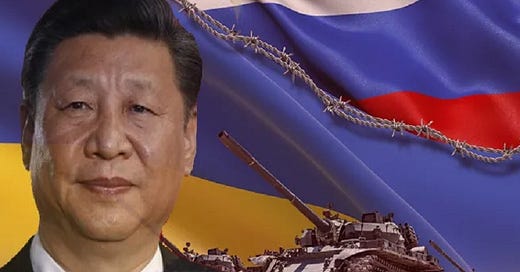It’s always a positive development whenever someone carries out shuttle diplomacy aimed at promoting whatever peace plan it may be, but well-wishers shouldn’t get their hopes up imagining that this means that any tangible results will be reaped.
Chinese Special Representative for Eurasian Affairs Li Hui, who was tasked last year with promoting his country’s 12-step peace plan for ending the Ukrainian Conflict, will soon set off on another voyage. Last May, he visited Kiev, Warsaw, Paris, Berlin, Brussels and Moscow, which are once again on his itinerary this time too. His latest round of shuttle diplomacy will promote China’s peace plan as the proxy war enters its third year but isn’t expected to reap any tangible results for the following reasons.
First and foremost, the liberal-globalist elite that rule over Ukraine’s dual Anglo-American patrons want to continue their doomed-to-fail campaign of attempting to contain Russia despite the growing costs. They’ve repeatedly rebuffed President Putin’s olive branches to resume negotiations aimed at reaching a pragmatic compromise on their respective security interests. Without their approval, Ukraine is unlikely to unilaterally recommence these talks, and Zelensky could face an SBU-driven regime change if he does.
Second, even though NATO as a whole and practically of its individual members deny it, French President Emmanuel Macron’s claim last week that they’re debating whether to conventionally intervene in Ukraine is reportedly supported by some of the bloc’s eastern members. Greek Prime Minister Kyriakos Mitsotakis revealed that the Baltic States, Poland, and the UK are in favor of this option, which they might envisage as a last-ditch attempt to prevent Ukraine’s collapse in the worst-case scenario.
The third point directly builds upon the preceding possibility since it’s nowadays openly discussed by Ukraine’s Intelligence Committee, which warned about it in a Telegram post last week. While some might think that it’s counterintuitive to imagine that Kiev would prefer that happening over the resumption of peace talks, its ruling elite might cynically consider it better for their interests. NATO boots on the ground could keep them in power while ending the conflict on some of Russia’s terms could lead to their ouster.
Fourth, Belarusian President Alexander Lukashenko warned late last month that the West is plotting a false flag provocation in Poland in order to blame his country and Russia, which could set a Polish-led conventional NATO intervention in Ukraine into the motion. It might not materialize if they realize that it’s wiser not to risk World War III by miscalculation in that dangerous event, but it also can’t be ruled out either in light of the abovementioned insight, thus further complicating China’s peace plans.
And finally, whenever the Anglo-American Axis finally decides to order Ukraine to recommence peace talks with Russia, it’ll certainly want to keep China out of this process since they plan to prioritize its containment next. With a view towards winning back some of the many hearts and minds that they lost in the Global South over the past two years, they might instead favor the African Union and India playing a role in this process. However it unfolds, few expect them to approve China’s participation.
All in all, it’s always a positive development whenever someone carries out shuttle diplomacy aimed at promoting whatever peace plan it may be, but well-wishers shouldn’t get their hopes up imagining that this means that any tangible results will be reaped. As was explained in this analysis, the odds are against China’s Special Representative succeeding, but he might at least convince some of his interlocutors that there’s already a path to peace available whenever they muster the political will to travel down it.




